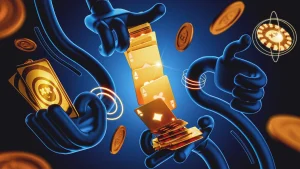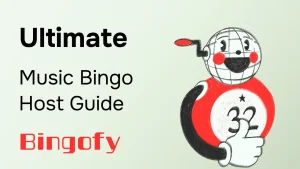You’ve seen them. Maybe you’ve even been one. The person at the slot machine, eyes locked on the spinning reels, or the individual meticulously filling out lottery slips week after week. It’s easy to dismiss this behavior as simple greed or a lack of math skills. But honestly, the reality is far more complex—and frankly, more human.
The drive to chase a life-changing jackpot is rooted in a fascinating mix of cognitive biases, emotional needs, and plain old brain chemistry. It’s not just about the money. It’s about hope, escape, and the powerful, seductive thrill of “what if.” Let’s pull back the curtain on the psychological profile of a frequent jackpot player.
The Allure of the “Almost Win”: How Our Brains Get Hooked
Here’s a critical insight: our brains react almost as strongly to a near-miss as they do to an actual win. When two jackpot symbols line up and the third is just one spot away, the brain’s reward system—the ventral striatum—lights up. It releases a dose of dopamine, the feel-good chemical associated with pleasure and reinforcement.
This neurological trick is incredibly powerful. Instead of feeling disappointment, the player feels a surge of anticipation. The brain interprets the near-miss as a sign that success is imminent. It’s like the machine is saying, “You’re so close! Try again.” This isn’t a design flaw; it’s a core part of the experience, a key component of problem gambling behavior patterns.
Cognitive Biases in Full Swing
Beyond the near-miss, several mental shortcuts, or cognitive biases, conspire to keep players in the game:
- The Gambler’s Fallacy: This is the belief that past events influence future outcomes in a random sequence. “I’ve lost ten times in a row, so I’m due for a win.” Of course, each spin of the wheel or draw of the numbers is independent. The odds don’t care about your losing streak.
- Illusion of Control: Players often believe they can influence a game of pure chance. Choosing their own lottery numbers, pressing the spin button themselves, or using a “lucky” charm creates a sense of agency. It transforms a random event into a skill-based one, however falsely.
- Optimism Bias: This is our natural tendency to believe we’re more likely to experience positive events than others. “Sure, the odds are 1 in 14 million, but someone has to win. Why not me?” This overestimation of personal luck is a powerful motivator.
Beyond the Money: The Emotional Payoff
If it were purely about financial gain, the behavior wouldn’t be so persistent in the face of near-certain loss. The truth is, for many, the motivations for playing jackpot games are deeply emotional.
For a few minutes or hours, the game offers a complete escape from daily stresses—bills, work pressures, relationship problems. The immersive lights and sounds of a casino or the quiet daydreaming that comes with buying a lottery ticket provide a mental vacation. It’s a form of emotional regulation, a way to cope with anxiety or boredom.
Then there’s the fantasy. The act of playing allows the mind to wander into a detailed “what if” scenario. What if I quit my job? What if I bought that house? What if I finally felt financially secure? This fantasizing is, in itself, a rewarding activity. It provides a brief hit of hope and excitement, a temporary respite from reality that can be… well, addictive.
Personality Traits and External Pressures
While anyone can be tempted by a jackpot, research suggests certain personality types may be more susceptible. Individuals who are naturally more impulsive or who seek out high-sensation experiences might find the erratic rewards of jackpot games particularly appealing.
Furthermore, let’s not ignore the impact of environment and circumstance. Financial desperation can make the long-shot jackpot seem like the only viable escape route. Social isolation can also play a role; the casino or lottery kiosk can become a place of social interaction, however fleeting.
| Common Trait/Pressure | How It Manifests in Play |
| High Sensation-Seeking | Thrives on the “rollercoaster” of big wins and losses. |
| Financial Strain | Views the jackpot as a “Hail Mary” solution to deep-seated money problems. |
| Lack of Social Connection | Finds a sense of community or purpose in the gaming environment. |
When Play Becomes Problem: Recognizing the Shift
It’s crucial to distinguish between casual play and problematic behavior. Gambling becomes a disorder when it ceases to be entertainment and starts to cause harm. So, what are the risk factors for jackpot gambling addiction? Look for patterns like:
- Chasing Losses: The desperate attempt to win back money that’s been lost, often leading to even greater losses.
- Preoccupation: Constantly thinking about gambling, planning the next session, or reliving past wins.
- Borrowing Money: Taking out loans or selling possessions to fund gambling activities.
- Neglecting Responsibilities: Letting work, family, or health suffer because of time or money spent on gambling.
If you or someone you know exhibits these signs, it’s a signal to seek help from professional resources.
A Final Thought on Chance and Choice
In the end, the psychology of the jackpot player is a powerful reminder that we are not purely rational actors. We are driven by stories, by emotions, by the need for hope. The jackpot isn’t just a number in a bank account; it’s a symbol of transformation.
Understanding the mental and emotional hooks isn’t about passing judgment. It’s about fostering awareness. It’s about recognizing that the biggest jackpot of all might not be the one advertised in flashing lights, but the ability to make a conscious choice—to understand the game, not just play it.
Because when you understand the pull, you hold the real power.







More Stories
The Science of Random Number Generators in Digital Jackpot Games
The Rise of Crypto and NFT Lotteries: A New Spin on Winning
The Psychology of Near-Misses and Almost-Wins in Gambling